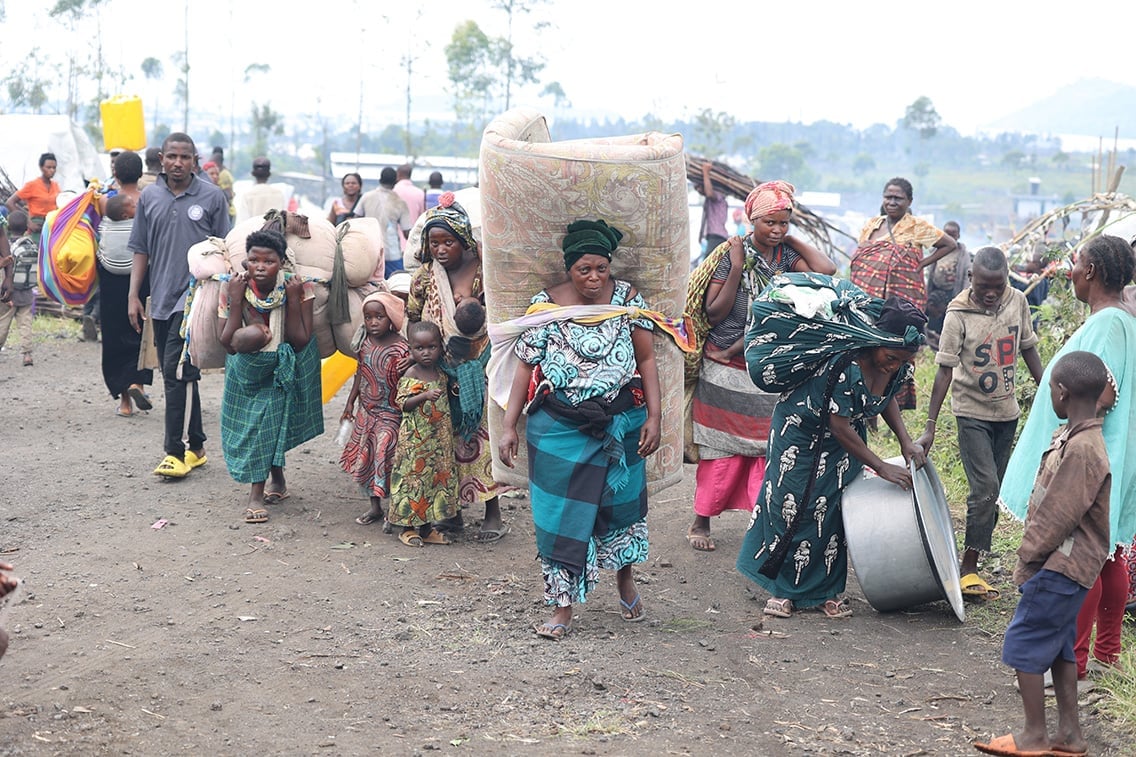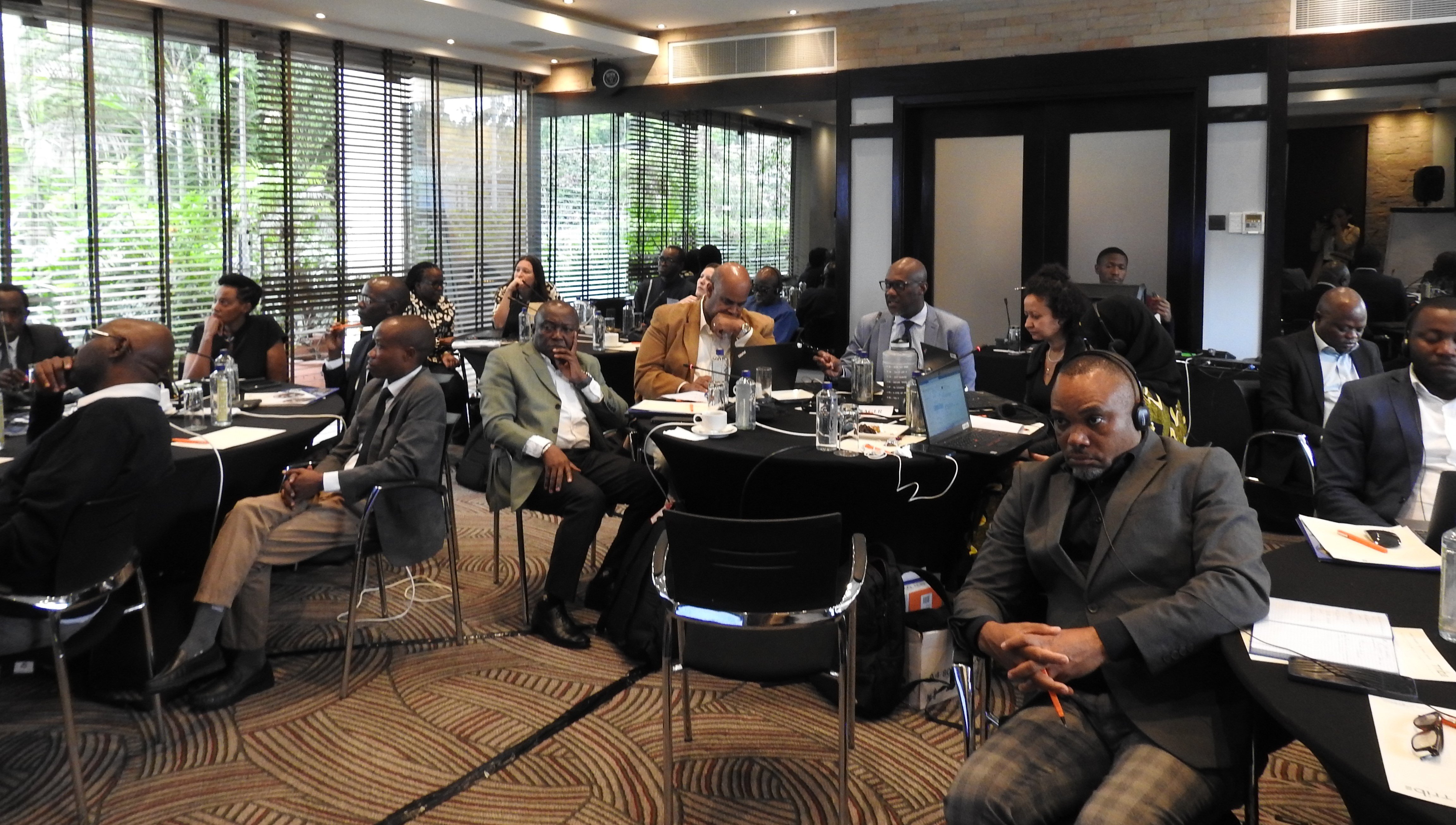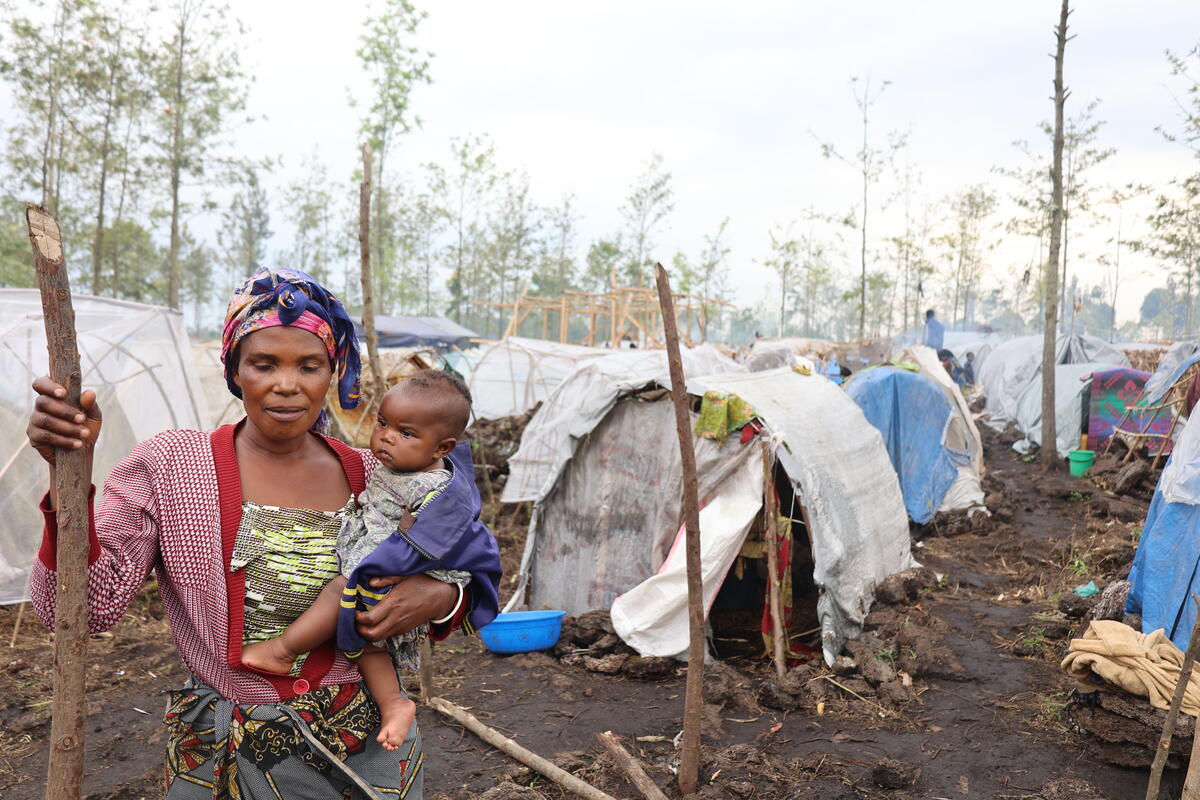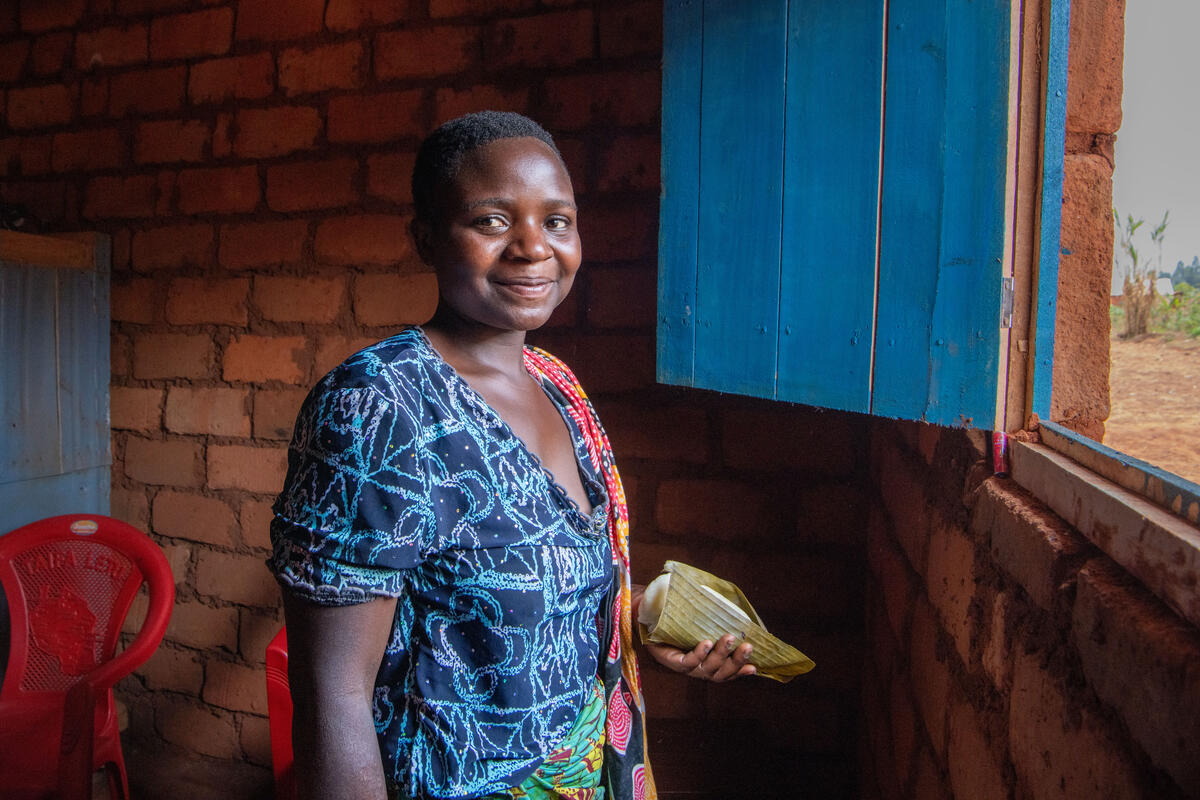Potatoes, Pigs and Poultry: Changing the game for refugees.
Potatoes, Pigs and Poultry: Changing the game for refugees.

TONGOGARA, Zimbabwe – Zimbabwe’s Tongogara refugee camp does not garner much by way of headlines. It is one of those refugee camps which has existed for decades with many generations of refugees residing there combined recently, with several thousand new arrivals that have come in steady small groups over the past two or three years, swelling the population of Congolese, Rwandans and Burundians to just under 10,000 people.
Together with the Government of Zimbabwe, UNHCR, the UN Refugee Agency has been ensuring that the refugees’ basic needs are met. While the number of refugees and asylum seekers has grown over the years, the resources for providing services have remained very much the same. UNHCR with its partner, GOAL Zimbabwe has been investing in developing livelihoods to help refugees fend for themselves. The results of this intervention decision are remarkable.
Potatoes
Isaac Habimana smiles broadly as he proudly shows off his growing potato crop planted on the outskirts of Tongogara refugee camp. Originally from Rwanda, he fled to Zimbabwe in 2000 due to unrest in his home province of Cyangugu, together with his wife and two young sons, then just seven and eight years of age. Travelling to Zimbabwe via Tanzania and Zambia, he was just looking to get as far away as possible from the insecurity in Rwanda at that time. He had spent over a decade in the camp, not doing much until UNHCR launched its Irrigation and Agricultural Project. Though he worked as a driver in Rwanda, this project has given him a new lease on life.
“Before I used to just sit in the camp,” says Habimana, “but now I can grow vegetables and earn money to help my children with school supplies. Habimana is also one of the five members of the Executive Committee of the Project. Together with GOAL they work to manage the programme.
“This is the first time we are planting potatoes,” says Tichoana Gadzika, Crop Specialist with GOAL, “we have previously harvested maize and sugar beans, which has much lower market value.”
There are over 400 refugees and 40 Zimbabweans who participate in the irrigation scheme. UNHCR provides seeds, fertilizer, pesticides for a limited period and support with getting the crops sold on the local market. The Government of Zimbabwe allows for water to be provided to the crops through a series of narrow cement irrigation canals that run from the nearby Save River. The cost of using the water is about 1,800 USD per month. The plan is that each member of the scheme will be able to contribute two US dollars per month to pay for the water in the irrigation scheme, as well as any necessary repair.
Piggery
In the past, pigs owned by the refugees would roam the camp creating unhygienic conditions and getting into refugees’ food. “We had to do something,” says Pride Chifodya, UNHCR’s Programme Associate.

ith careful consultation and research involving the pig owners, a piggery was established where the animals could be kept humanely, vaccinated against diseases and fed properly. They also established linkages with several abattoirs and butcheries so that the pigs could be sold off timely and at market value.
Veronica Muendakanya, a hairdresser from Kinshasa, DRC never thought that one day she would be raising pigs. She and her family were forced to flee to Zimbabwe in 2012 when her husband was accused of being part of the opposition. He was arrested and tortured, which resulted in paralysis. When he was released from jail, they fled to Lubumbashi and later managed to escape and make their way to Zimbabwe.
“Often times my neighbours would confront me about the pigs getting into their gardens now we have them in a safe place,” explains Muendakanya. With the inoculation and medicines provided to them, they are ensured of healthier sounder swine which when sold equates to a larger income. “This has enabled me to take better care of my husband and children,” adds Muyenakanya
Poultry
“We run out of eggs every day there is such a high demand in the camp,” says Pierrette Kigangu a refugee who fled to Zimbabwe in 2012, from the DRC. Trained as a nurse, she didn’t have much to do in the camp. When she heard about the poultry project being launched by UNHCR and GOAL she was curious about it. Kigangu often went to the meetings to learn more about poultry and finally became part of the project. Started just over a year ago, it has become a huge success. Two groups of refugees raise both broilers (chickens for eating) and layers (for producing eggs). The eggs are bought by the refugees in the camp using the cash provided by WFP which were introduced in January 2016 to replace food distributions. The poultry groups have raised enough money to also open a shop in the camp which sells their eggs and other household items.

Apparently, chickens produce more eggs if they have at least 16 hours of light a day. The members of the poultry project have used some of their profits to invest in a solar lighting system which was installed by Simon Longo, a refugee from the DRC who is also part of the project. An electrical engineer by profession, he fled to Zimbabwe in 2011 because of unrest in his home country.
“Until the project came along, I would spend hours sitting under the trees just thinking and feeling bad about not being able to support and provide for my family. Now being part of the project I am able to take care of them and I have a new sense of worth because what I learned here about how to raise chickens, I can take it anywhere,” says Longo.
We are making these investments into agriculture and small animal husbandry as a way of reducing dependency in the camp, says UNHCR’s Representative to Zimbabwe, Robert Tibagwa, “While we initially saw it as a purely economic benefit, we are now seeing positive changes in the lives of some of the refugees in the camp. Similarly, the support from the Government of Zimbabwe in providing access to land has also been invaluable as this is a way to grow food security, increase independence and create economic inclusion.”
“The investments that GOAL has made to help refugees link up with local markets has been key in making the programme a success,” adds UNHCR Senior Regional Livelihood Officer, Line Astrom. “We would like to replicate what GOAL is doing in other UNHCR programmes around Southern Africa. With more funding in this area, we could really make in difference in lives of refugees, particularly of those living in protracted situations.”










